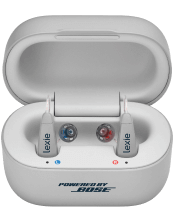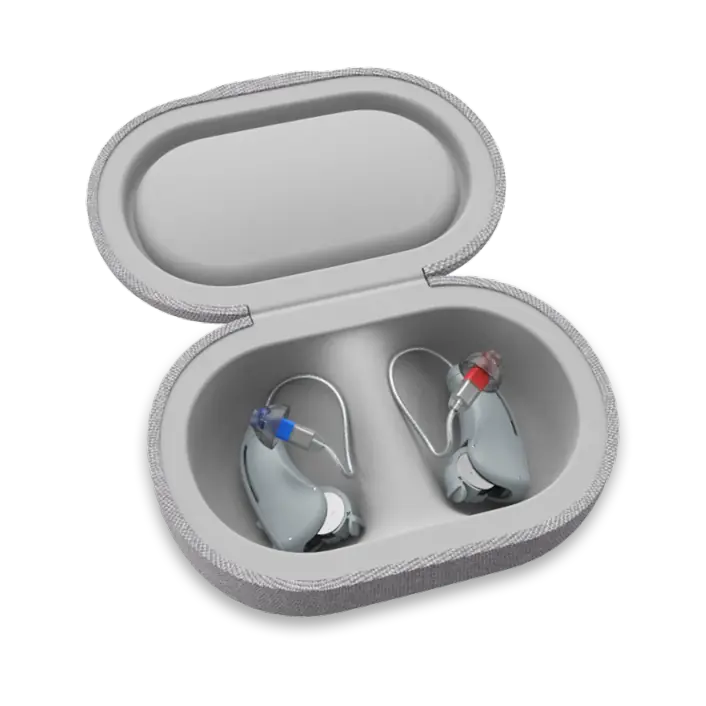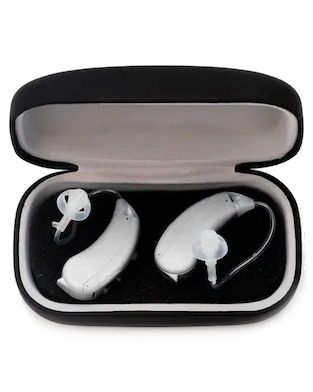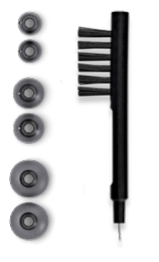Why do Modern Hearing Aids Whistle?
Published: July 15, 2020
Updated: July 19, 2022
Hearing aid manufacturers are constantly striving to update and improve hearing aid technology to provide their users with the most comfortable and natural listening experience possible. However, one of the most common complaints from hearing aid users to date is that modern hearing aids whistle. Some hearing aid users may even describe this sound as “screaming”, “screeching” or “squealing”.
What causes my hearing aids to whistle?
A hearing aid has three important components i.e., a microphone, amplifier, and receiver. The microphone picks up sound from the environment and converts it into electrical signals. These electrical signals are made louder and more powerful by the amplifier which is then sent to the receiver. The receiver then transmits the sound into the ear. Due to the close proximity of the microphone and receiver, the sound leaving the receiver may occasionally be picked up again by the microphone and re-amplified. This causes a high pitched whistling or squeaking sound called feedback.
Feedback can be heard by the hearing aid user and at times by other people as well. It may often cause the user to feel embarrassed or annoyed. Additionally, feedback may cause loudness discomfort and interfere with sound quality, thus affecting the benefit that one should receive from a hearing aid.
How has technology improved feedback?
Advances in hearing aid technology have dramatically reduced the amount of feedback experienced by users. Feedback management systems are now integrated into the majority of modern hearing aids. These systems are designed to automatically pick up feedback and eliminate it before it is heard by the user. However, even with the best hearing aid available, it is almost inevitable that feedback will be experienced at some point. While it may be completely normal for feedback to occur, it may also indicate that something may be wrong with your hearing aid.
7 Reasons for feedback
1. Inserting and removing your hearing aid
You may find that your hearing aid whistles when you insert or remove it. While this may be bothersome, it is completely normal. Lexie hearing aids have a time delay which gives you a few seconds to insert the hearing aid before it begins amplifying sound, thereby allowing you to avoid feedback.
2. Slim tube and dome not properly inserted
Incorrectly inserted hearing aids also whistle. This can happen to anyone, especially first-time hearing aid users. Use a finger to ensure that the slim tube or receiver wire is sitting flush against the side of the ear with the retention wire secure in the bowl of the ear. The dome may also need to be pushed a bit deeper into the entrance of the ear canal to obtain a proper fit.
3. Poor-fitting domes
It is important to select a dome that fits comfortably into the ear canal whilst creating a proper seal. If your dome is not sealing the ear canal correctly, it is very common for feedback to occur.
4. Broken slim tube or receiver-wire
The slim tube which connects the hearing aid to the dome may be the problem. A crack in the tubing will allow sound to leak out and cause feedback. Over time, the tubing may also begin to discolor and harden. In that happens, the slim tube should be replaced.
If you have a Receiver-in-Canal hearing aid, the wire between the body of the hearing aid and the receiver (encased by the dome) can become well-worn or damaged over time, contributing to potential feedback. Inspect your receiver wire regularly for any damage and replace it if so required.
5. Volume is set too loud
Turning up the volume on your hearing aid too much can cause sounds to escape from your ear canal and thus cause feedback. Try turning down the volume to see if the feedback improves. If you have done so and are now struggling to hear, contact our friendly hearing experts at Lexie Hearing. They will be able to make adjustments to the particular sounds that you are struggling with.
6. Earwax
If your ear canal is blocked with excessive wax, the sound transmitted through the receiver cannot pass through. This causes the sound to be pushed back out of the ear towards the hearing aid, causing it to whistle. If excessive wax is the problem, schedule an appointment to have the wax removed by your physician.
7. Other causes
Feedback may occur when you use a phone. Try to hold the phone close to but not touching the microphone on your hearing aid. Wearing accessories such as scarves or hats can also cause feedback when they rub on the top of the microphone. Turning down the volume of your hearing aid may help, but this may not be an optimal solution. It would be best to avoid using such accessories or to try different styles of hats that may not touch and interfere with your hearing aid.
If you don’t suspect any of the above causes for the feedback experienced, you may need to consult our hearing experts at Lexie Hearing. They will be able to help you determine the cause for the feedback experienced and make the necessary adjustments to correct it. In some instances, there may be a problem with the internal components of your hearing aid. In this case, our hearing experts will send your hearing aids back to the supplier to resolve the issue. Regular servicing and care of your hearing aids could help to prevent such a problem from occurring.






